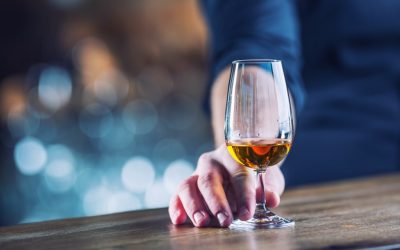Another pathway to activate NF-κB is non-canonical signaling, which relies on the tightly-regulated processing of p100, opposed to the rather constant processing of p105 [39]. The canonical NF-κB pathway is responsive to numerous different receptors such as TLR4, IL-1, TNFR, and T-cell receptors [40]. This is in contrast to the non-canonical pathway, which is mostly activated by receptors from the TNFα receptor superfamily [41], including activator of nuclear factor kB [42]. In https://ecosoberhouse.com/ an unstimulated milieu, the above mentioned p100 processing is inhibited by degradation of NF-κB-inducing kinase (NIK) [43]. Here, TRAF3 rapidly binds the newly synthetized NIK and induces its ubiquitylation by recruiting of E3 ligases cellular inhibitor of apoptosis (cIAP), needing TRAF2 as an adaptor molecule [44]. Upon activation, the TRAF2–TRAF3–cIAP complex is recruited to the TNFα receptors and its subsequent ubiquitylation and degradation lead to NIK accumulation [44,45].

In contrast, men who consumed a similarly moderate amount of beer for the same period exhibited a significant increase in basophils alone. Alcohol consumption does not have to be chronic to have negative health consequences. There is evidence in a number of physiological systems that binge alcohol intake complicates recovery from physical trauma (see the article by Hammer and colleagues). Molina and colleagues review research showing that alcohol impairs recovery from three types of physical trauma—burn, hemorrhagic shock, and traumatic brain injury—by affecting immune homeostasis. Their article also highlights how the combined effect of alcohol and injury causes greater disruption to immune function than either challenge alone.
Molecular Mechanisms of Dose Dependent Modulation of Immunity
As we said before, your immune system protects your body from unwelcome invaders and certain types of cancers. What’s more, a short period of binge drinking — let’s say a month — can cause a reduction in T cells. And this reduction is equal to that does alcohol suppress immune system of someone who has been binge drinking for 6 months. They do this by destroying the cells in your body that have been taken over by viruses. If you’re unfamiliar, inflammation is what naturally occurs when your immune system goes into action.
A person who drinks every day is more likely to have a weakened immune system and experience health complications than someone who rarely drinks or only drinks on occasion. It causes pus to accumulate in the respiratory system’s pleural cavity, the space between the chest cavity’s inner wall surface and the lungs. Since pneumonia is an infection inside the lung, a person can gradually cough it out. Empyema occurs outside of the lungs, so doctors must remove it via surgery or by draining it with a needle. Even drinking a little too much (binge drinking) on occasion can set off a chain reaction that affects your well-being.
What are signs of a weakened immune system?
Alcoholic beverages are energy dense and often become the primary energy source in those with AUD, leading to malnutrition. Individuals with AUD are often deficient in one or more essential nutrients including vitamin A, vitamin C, vitamin D, vitamin E, folate, and thiamine (Hoyumpa 1986). These micronutrients have been shown to play an important role in immune system homeostasis and response to infection (Mora, Iwata et al. 2008). Monocytes express Toll-like receptor (TLR) 4, the PRR that is often responsible for recognizing LPS on the surface of Gram-negative bacteria.
In other studies, chronic alcohol feeding impaired Th1 responses to a hepatitis C virus protein, a defect that was hypothesized to result from impaired secretion of IL-2 and GM–CSF by dendritic and T-cells (Geissler et al. 1997). This alcohol-induced defect in Th1 immunity correlates with suppression of IL-12 secretion by macrophages and dendritic cells (Waltenbaugh et al. 1998). Thus, it appears that alcohol inhibits Th1 immune responses and may predispose the organism to Th2 responses and that this shift is at least partly mediated by suppression of IL-12. To elicit a response from the cell-mediated arm of the adaptive immunity, antigens need to be presented to the CD4+ and CD8+ T-cells.
